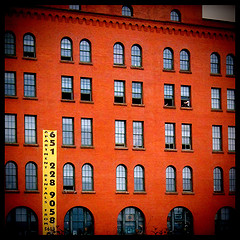
 If you’re an independent Landlord, chances are at some point you’ll be considering a furnished vs. unfurnished lease. Each option has its pros and cons, a few of which are discussed below. The bottom line is that most places will perform better unfurnished because almost all potential renters already have their own furnishings. Most tenants will also want to make their leased property their home by decorating and furnishing it themselves. There are exceptions, and you should do your own market research to determine which is best in your situation.
If you’re an independent Landlord, chances are at some point you’ll be considering a furnished vs. unfurnished lease. Each option has its pros and cons, a few of which are discussed below. The bottom line is that most places will perform better unfurnished because almost all potential renters already have their own furnishings. Most tenants will also want to make their leased property their home by decorating and furnishing it themselves. There are exceptions, and you should do your own market research to determine which is best in your situation.
When Should You Rent a Property Fully Furnished?
- Your Property is a Vacation Home: Without a doubt, the #1 reason to rent your property furnished is that people are only staying for a vacation. Vacation homes that are rented for 6 months or less should always be rented furnished (but you knew that… who goes on vacation to an unfurnished house?)
- Your Target Market is Transient Business People: The most common types of housing for this leasing audience are townhomes and condominiums near business parks or in city centers. Your target audience is people who will stay for short periods–one week to a maximum of a couple of months. These tenants will want the luxury of staying in a place a little nicer than an EconoSuites. If this is your audience, your rental should provide always include a great office, high speed internet, and other business-useful ammenities.
- Your Target Market in College Kids: The mere thought of renting to college kids strikes fear into the hearts of many Landlords. If you’re one to brave this challenge, you’ll want very durable furniture that’s easily cleaned and cheap to replace. Visit a college dorm room on a campus somewhere; most colleges have learned what type of furniture to put in dorms. Copy what they’re installing.
- Your Furnishings Complement the House in a Unique Way: In specialized rentals where the furnishings and the home complement each other (for instance, in certain historic homes), it may be better to rent furnished. In this situation, you should consider how much stuff your tenants are likely to bring with them, and ensure there is plenty of storage or unfurnished rooms to acommodate their stuff.
- There Is a Market Demand for Furnished Housing: This is a more difficult item to assess, but is the ultimate test of whether you should rent home furnished. Is there a high demand for furnished housing in your area? One way to find out is to see if anyone else is advertising a furnished rental. Track how long that rental is on the market – if it rents quickly, your area might be perfect for this kind of rental.
Pros and Cons of Furnished Rentals:
Pros:
- Higher rental price – anywhere from 25-100% depending on market.
- Existing furniture doesn’t need to be moved (as long as its the right furniture for the house).
- Less competition in most markets.
Cons:
- Smaller pool of potential tenants in most markets.
- Shorter rental periods require additional Landlord involvement or incur higher management fees.
- Potential damage to furniture, leads to higher liklihood of Landlord – Renter disputes.
- Higher security deposit required to cover potential furniture damage reduces affordability.
- Higher maintenance costs to deal with furniture cleaning between tenants and furniture lifecycle replacements due to normal wear and tear.
- More complicated move-in and move-out inspections covering furniture condition.
- Higher insurance costs for fully furnished properties (15-50% higher in most cases).
When Should You Rent a Property Unfurnished?
Not surprisingly, the basic answer to this question is: whenever it doesn’t make sense to rent it furnished. In general, it makes sense to rent a property unfurnished most of the time. You should rent unfurnished when:
- Your Target Market Already Has Their Own Stuff: Most tenants will be moving with at least some of their own stuff. Remember, even kids moving out for the first time usually come with their own bedroom furniture. This is the #1 reason to rent a property unfurnished.
- Your Target Market Has a High Probability of Damaging Furnishings: There are certain market segments that are more likely to damage furnishings than others. In general, low income and college rentals should be leased unfurnished, or the rental furnishings should be extremely durable (in the case of a college rental).
- You Don’t Have Time to Deal with the Hassles of a Furnished Rental: There are a number of hassles associated with furnished rentals (see the Cons section above). If the thought of dealing with these makes you uneasy, chances are you shouldn’t rent furnished.
- The Added Cost of Renting Furnished Isn’t Recoverable in Rent: At the end of the day, the question can be one of economics. There are considerable additional costs associated with renting a furnished property. If the market is only willing to pay a 15% premium for a furnished property, it probably doesn’t make sense to rent furnished.
Pros and Cons of Unfurnished Rentals:
Pros:
- Larger potential rental market with longer lease periods.
- Less time required to manage the property.
- (also see Cons in the section above).
Cons:
- Lower rental price.
- More competition from other Landlords.
- (see list of Pros in the section above).
What do you think? Have you had an experience renting a furnished or unfurnished home? Did we miss anything from our list of factors to consider?
Image courtesy of blhphotography.







Furnished lease suits me since I don’t have to buy furnishings and besides I’m just renting anyway it’s not my own house.
Furnished rentals are a very good option for those such as missionaries who will be returning home after a set period of time, provided they have trusted contacts to whom they can rent.